How monkeys are abused to make your coconut milk: Shocking research reveals conditions of animal ‘workers’ in Thailand – as Co-Op becomes first major supermarket to stop selling Thai milk
- Co-Op has become the first major supermarket to stop selling Thai coconut milk
- Investigations revealed the cruel treatment of the monkeys used to pick the coconuts
A leading supermarket has ditched trendy coconut milk produced by ‘cruel’ monkey labour.
The Co-Op has become the first major supermarket to stop selling all coconut milk from Thailand from its 2,800 stores.
It comes after an undercover investigation exposed the cruel treatment of the monkeys used to pluck the coconuts.
Coconut milk has become a popular alternative to traditional dairy milk among vegans and consumers concerned about the welfare of dairy cows.
But a study by animal welfare group PETA found that the macaques that used to climb high branches to grab coconuts were horrifyingly abused.
The Co-Op has become the first major supermarket to stop selling all coconut milk from Thailand from its 2,800 stores. It comes after an undercover investigation revealed that the monkeys used to pluck the coconuts were treated cruelly
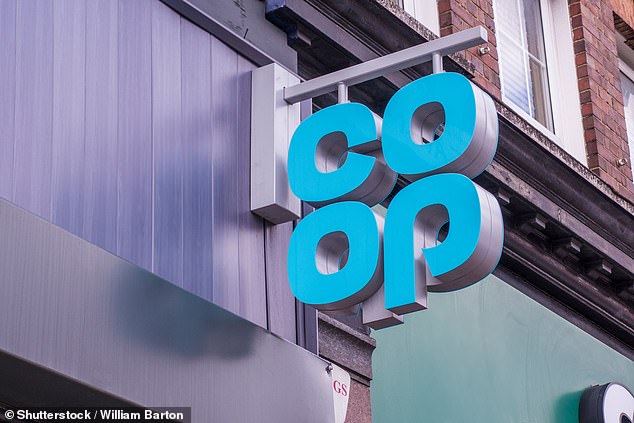
The cooperative only sells coconut milk from Sri Lanka, a product that is not produced with monkey labor
Now the cooperative only sells coconut milk from Sri Lanka, a product that is not produced with monkey labor.
PETA’s study examined coconut farms in nine provinces in southern Thailand.
Among the alleged abuses in the investigation was a trainer who was caught on camera dangling a screaming monkey by the neck and hitting it with a chain.
In another case, a monkey used for breeding was kept chained in the sun, without access to water, while other young monkeys were kept in cramped cages.
Workers the researchers spoke to said some monkeys suffered broken bones from falling from trees – or being pulled down by humans.
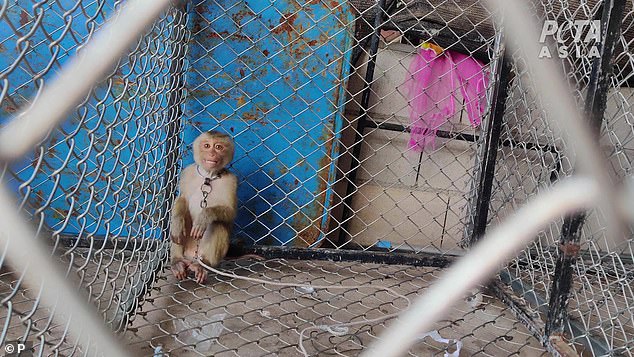
PETA’s study examined coconut farms in nine provinces in southern Thailand
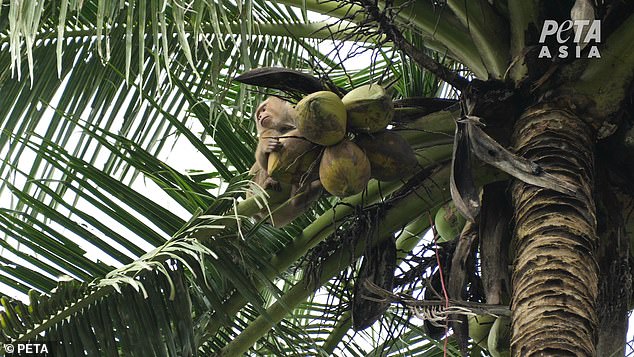
Among the alleged abuses in the investigation was a trainer who was caught on camera dangling a screaming monkey by the neck and hitting it with a chain.
One worker told researchers that most monkeys in the wild have been abducted from their families, even though the species exploited by the coconut trade are threatened or endangered.
PETA’s Senior Corporate Projects Manager Dr Carys Bennett said: ‘Peta is calling on all retailers to stop selling Thai coconut milk products until monkeys are no longer used and abused for profit.
She added: “We urge the Thai government to end the exploitative practice of forcing captive monkeys to harvest coconuts.”
The Thai government has denied claims of widespread abuse, saying the traditional practice of using monkeys to harvest coconuts is virtually non-existent in the industry, which due to its size relies instead on human labor and machinery.
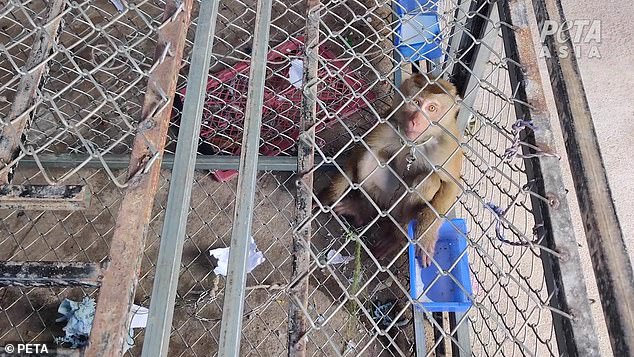
A worker told researchers that most monkeys in the wild have been abducted from their families, even though the species exploited by the coconut trade are threatened or endangered.
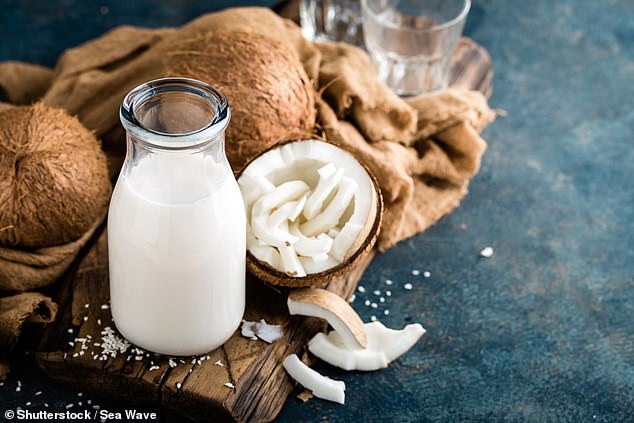
A Co-op spokesperson said: ‘As a convenience retailer, we continually review our range to ensure we provide the best quality products to our members, owners and customers, and have launched Co-op’s first Sri Lankan own-brand coconut milk brought to market. since March’ (stock image)
However, recent estimates from the Wildlife Friends Foundation Thailand estimate that Thai farmers keep a total of 4,000 to 5,000 monkeys, of which about a third are used for labor.
Wildlife experts say growers typically use two species of monkeys: northern and southern pig-tailed macaques, with the northern species considered vulnerable and the southern endangered under the International Union of Conservation of Nature’s red list.
A Co-op spokesperson said: ‘As a convenience retailer, we continually review our range to ensure we provide the best quality products to our members, owners and customers, and have launched Co-op’s first Sri Lankan own-brand coconut milk brought to market. since March.”
